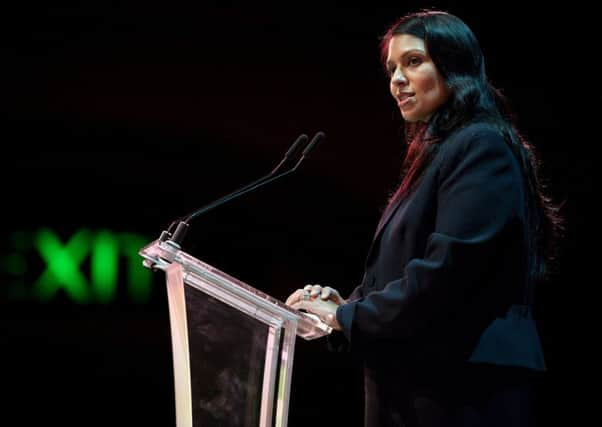Cabinet '˜very clear' on Brexit, says minister Priti Patel


Priti Patel said the Cabinet has a “clear position” which includes an end to the free movement of labour when the UK leaves the European Union, expected in 2019.
But it comes amid apparent splits over the terms of any transition arrangement to provide a bridge between the withdrawal date and the agreement of a new trade deal with the EU.
Advertisement
Hide AdAdvertisement
Hide AdMs Patel was speaking after the Institute of Directors urged the Government to come to a collective agreement on transitional arrangements as soon as possible to avoid a “cliff-edge” Brexit.
The International Development Secretary told Sky News: “There’s a very clear position and that position has been outlined by the Prime Minister in her Article 50 letter but also through the negotiations being led by David Davis.
“You know, come March 2019, the United Kingdom will be leaving the European Union. With that, that means we’ll be taking back control of our borders and our immigration policy, which means an end to free movement.
“And our position is very clear on that, along with the fact that we are all working together as a Government to secure the best deal for Britain so we can prosper as a nation.”
Ms Patel rejected suggestions that Brexit-backing MPs like herself were not having their voices heard following a disastrous general election for the Tories in which the party lost its House of Commons majority.
The IoD set out a range of transitional options including membership of the European Economic Area and extending the Article 50 negotiating timetable, which currently will see Britain quit the EU by the end of March 2019.
It said prioritising an agreement to extend Brexit talks under Article 50 would be “on paper the simplest solution”, giving more time to negotiate a trading relationship.
But it acknowledged that that option would be “very politically challenging” for both the EU and some Brexit-backing MPs. Staying in the EEA and therefore single market during a transition period, an “off-the-shelf” model being touted in some quarters, would give the UK a degree of autonomy, but is “not straightforward”, the IoD warned.